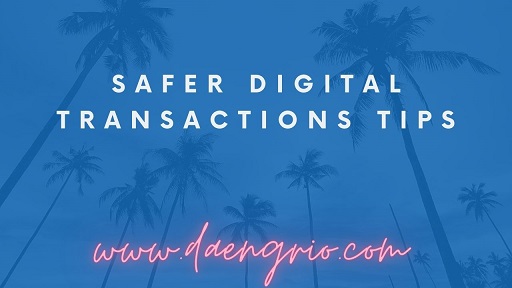Safer Digital Transactions Tips – Offline transactions benefit from technological advancements that occur with digital transactions. Previously, only an EDC (Electronic Data Capture) system could be used for offline digital transactions. QRIS scans, mobile transfers, and e-wallets are now among the many digital transactions available.

People must be cautious when transacting in the middle of the growing need for digital transactions. Here are few digital transaction safety tips to help you avoid various types of cybercrime:
Do Not Provide Confidential Information
Debit/credit card numbers, card validity period, date of birth, PIN (Personal Identification Number), user ID, password, and OTP are examples of confidential data that should not be shared (One Time Password). This information is the key to accessing your personal information. Avoid communicating sensitive information via digital chat apps or social media. If your mobile number changes or can no longer be used, notify the bank promptly so that it is not misused by irresponsible parties.
Modify The PIN and Password Periodically
Change the PIN and password on a regular basis to prevent others from learning the access code. To prevent the passcode from being easily guessed, use distinct digits, punctuation, and letters. Try to separate the PIN and password for bank accounts from those for other accounts.
Make Two Factor Authentication available
When transacting digitally, two factor authentication will provide added security. Before the transaction is completed, an additional layer of security is added by sending a verification code or OTP (One Time Password) code to the phone number.
Resist The Temptation Of Free Gifts
Many types of fraud have recently happened, such as the temptation of presents via SMS, email, social media, or direct phone calls. If you encounter this, avoid clicking on the link that was emailed to you. Check if the phone number, email address, social media account, or website is from an official entity. Never give out personal information to strangers!
Do Not Use Public WiFi
Using public WiFi (Wireless Fidelity) for financial transactions is risky for personal data protection. Public WiFi networks are public property and can be accessed by anyone, allowing data hacking to take place. There is a substantial risk of personal data theft and leaking, which can be used by irresponsible parties. To increase the security of financial transactions, you should use a private internet network.
These are few methods on Safer Digital Transactions Tips. Maintain vigilance and never divulge your personal information to anyone!